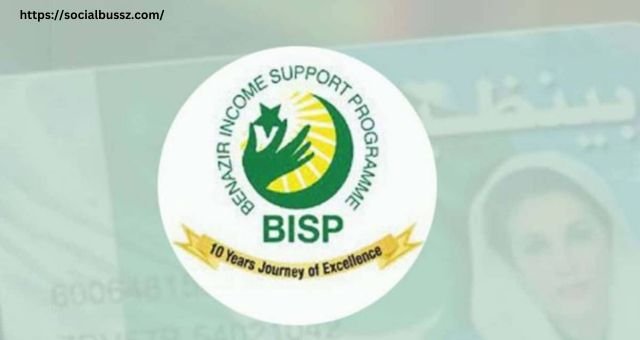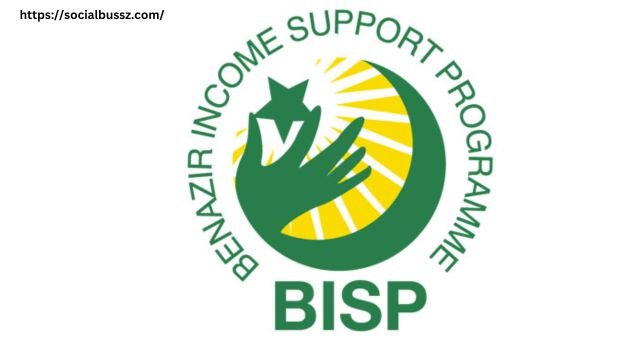Introduction
The Benazir Income Support Programme (BISP) is one of the major social safety nets in Pakistan. It intend to help with poverty alleviation. Additionally, it assists the needy sectors of society. The program initiated in 2008 by the Pakistan Peoples Party (PPP) government. At that time, the former President, Mr. Asif Ali Zardari, was in office. Moreover, the social security program named after the former Prime Minister, Ms. Benazir Bhutto. In the past two years, BISP has emerged as the single largest social safety net program in the country. Initially, it conceived to target as many as twenty-two million low-income households.
The Brief History and Goals of Benazir Income Support Programme
The Benazir Income Support Programme (BISP) established during a time of economic crisis in Pakistan. At that time, the country was facing many challenges. First, there were high inflation rates. Next, unemployment rates were also very high. As a result, there was an urgent need for support. The primary goal of BISP was to provide immediate assistance to the poor and needy, especially women. To achieve this, the program offered unconditional cash payments. In other words, it aimed to help low-income families meet their basic needs like food, healthcare, and education. Consequently, the program ensured that these families were less affected by economic downturns.
Furthermore, the program focused specifically on women. Female heads of households were the main beneficiaries. This approach not only met the needs of the poorest members of society but also addressed the issue of gender equality. Gender parity is crucial for socio-economic growth. In this way, the program contributed significantly to the economic and social empowerment of women.
Key Features of Benazir Income Support Programme
- Unconditional Cash Transfers (UCTs):Looking at its essence. BISP provides Unconditional Cash Transfers (UCTs) to relevant families. These are funds given to qualified female heads of households. Every quarter, these funds provided based on a poverty scorecard. This scorecard created using data from an NSER survey. The UCTs aim to give immediate financial support to families. In particular, they help those with income levels below the poverty line. Therefore, these transfers help fulfill necessary expenses for such families.
- Conditional Cash Transfers (CCTs):In addition to UCTs. BISP also disburses Conditional Cash Transfers (CCTs). These transfers are specifically designed to improve human capital. For example, one of the CCT programs under BISP called Waseela-e-Taleem. This program encourages families to send their children to primary school. To achieve this, it provides a cash grant to the families. As a result, it aims to reduce absenteeism rates among students. Moreover, it ensures that every child from a poor background has a chance to study in a quality school.
- Targeting Mechanism: BISP employs a scientifically developed targeting instrument. Known as the Poverty Scorecard. This scorecard is a combined index that captures various aspects of a community’s socio-economic status. For instance, it considers the number of family members and dependents. Additionally, it looks at the assets the family possesses and their educational levels. This comprehensive approach helps identify families that need financial support.
Benazir Income Support Programme – The Canadian Method
The decision about who is eligible to receive food subsidies on a tool called the “scorecard.” This scorecard is a composite measure. It looks at the socio-economic status of the applicant. Moreover, it considers several factors to determine who needs assistance the most. As a result, this method helps ensure that the assistance reaches those most in need. Therefore, it also minimizes leakages and other forms of misuse.
Furthermore, a technology-driven approach. It’s used to make the Benazir Income Support Programme more transparent, effective, and efficient. For instance, it has introduced modern technology in its operations. Payments made through POS (Point of Sale) terminals and electronic vouchers. Additionally, these transactions, conducted using biometric identification, smart cards, and mobile money. This approach helps prevent fraud and ensures that the entitled money reaches the right people.
Impact of Benazir Income Support Programme on Poverty Reduction
BISP has made significant progress since its establishment. Moreover, it has done a lot to reduce poverty in Pakistan. For instance, the program has offered financial support to millions of people. As a result, it has become an effective way to help families escape the poverty trap. Several empirical studies and reports show that Benazir Income Support Programme has played a positive role in reducing poverty. In addition, it has helped improve food security for many people. Moreover, it has also upgraded the consumption standards of beneficiary households.
Another benefit that has realized is at the social level, particularly for women. Women have been largely impacted by BISP. The benefits provided to women, as the main targeted clients, have enhanced their social dignity. In addition, it has increased their power to make decisions at home. For example, BISP cash transfers to women have increased children’s enrollment in schools. They have also enhanced primary health care among women. Consequently, this leads to a better socio-economic future for families.

Conclusion
One of the important programs that has implemented in Pakistan is the Benazir Income Support Programme (BISP). Its main aim is to reduce poverty, especially among women. In addition, it serves as a source of economic support. With more reforms, it can become even more effective. Moreover, advancements in technologies can help improve its impact. Social incorporation is also essential for its success. Therefore, the BISP has a wide chance to positively impact the future of millions of people in Pakistan. In the long run, it can help uplift society and promote equal rights for all.





